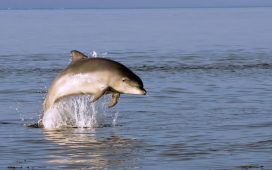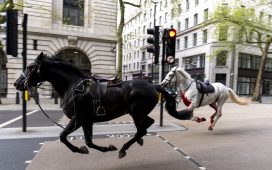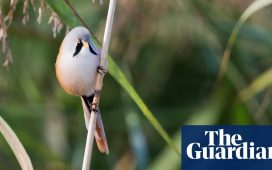I have a problem with milk. Well, multiple problems. Let me elaborate. (Are you excited?) Cow’s milk is, of course, bad news for the planet: three times worse in greenhouse emission terms than any plant milk. I have known for ages, but pretended not to, because tea is horrible with oat milk.
I do, however, seek out the least bad dairy. I get my milk from cows fed on seaweed, which reduces bovine belching: research has recently found this can cut methane emissions by up to 82%. So, great? Well. First, it comes in a plastic bottle, not a glass one. Worse, as a household we finish our two pints of seaweed milk precisely six days after our weekly delivery. If I ordered another two-pint bottle, most of it would end up down the sink. I have tried holding out, but I feel bad imposing my eco-guilt on my younger son, who has the smallest carbon footprint of any of us, and just wants milk on his cereal, so I end up buying a pint of Bad Milk from the corner shop. The household vegan is disgusted by dairy, but drinks a litre of oat milk a day delivered in packaging the council does not recycle.
If you aren’t insensible with tedium at this point, congratulations, but my point is: living ethically is hard. In the second half of my life, I feel morally compelled to do better; I am ever more aware and appreciative of the heart-stopping beauty of the world, and anxious to minimise my part in transforming it into a flaming wasteland. But, goodness, it is complicated – and milk is just the tiniest example. I bought a secondhand bed last week, to avoid contributing to flat-pack landfill waste, but it came without slats, and I ended up buying them from Ikea. I recycle like a demon, sorting, flattening, rinsing and parsing the council’s opaque and inadequate recycling policy, but no one will take plastic takeaway boxes, a stacked record of my laziness and greed. “Won’t it all end up in some Indonesian plastic island anyway?” says my best friend, depressingly (but probably correctly).
Every choice is bad; I am constantly balancing one harm against another. As in so much of life, I just want someone authoritative to tell me what to do. Friends lose patience with my eco-anxiety: the responsibility, they say, lies with states and corporations, not us; 100 companies are responsible for 71% of greenhouse emissions. It’s also true that when governments make proper financial and structural commitments, it becomes easier for individuals to do the right thing. When I lived in Belgium, everyone knew what to recycle and how (there were ad campaigns everywhere). The state commitment to comprehensive and affordable public transport, cycling and pedestrian infrastructure is chipping away at Belgians’ love affair with their cars. Our government could make this far simpler for us; it chooses not to.
But you can’t just give up, can you? Hence my shambolic attempts to tread more lightly, stuck between a rock – my conscience (admittedly more wobbly blancmange than rock) – and a hard place: my younger son, who says I’m “on the point of becoming one of those toothless hermits on Ben Fogle’s New Lives in the Wild who lives underground”. He’s right: life would be so simple in my burrow with my composting toilet, I often think, wistfully.
But what about my husband? That brings us back to milk. I’m going to have to quit: the journalist Henry Mance’s new book, How to Love Animals, has forced me to confront welfare concerns over dairy cows and their calves that I have tried to swerve for years. But my husband is from Normandy; no culture in the world worships the produce of the cow more fervently than his. Will our relationship survive? Surely this is the definition of “irreconcilable differences”? Because guess what: even divorce is bad for the planet. Research found divorced US households used between 42% and 61% more resources per person than before the split. Maybe I won’t print off that recipe for cashew camembert just yet.








